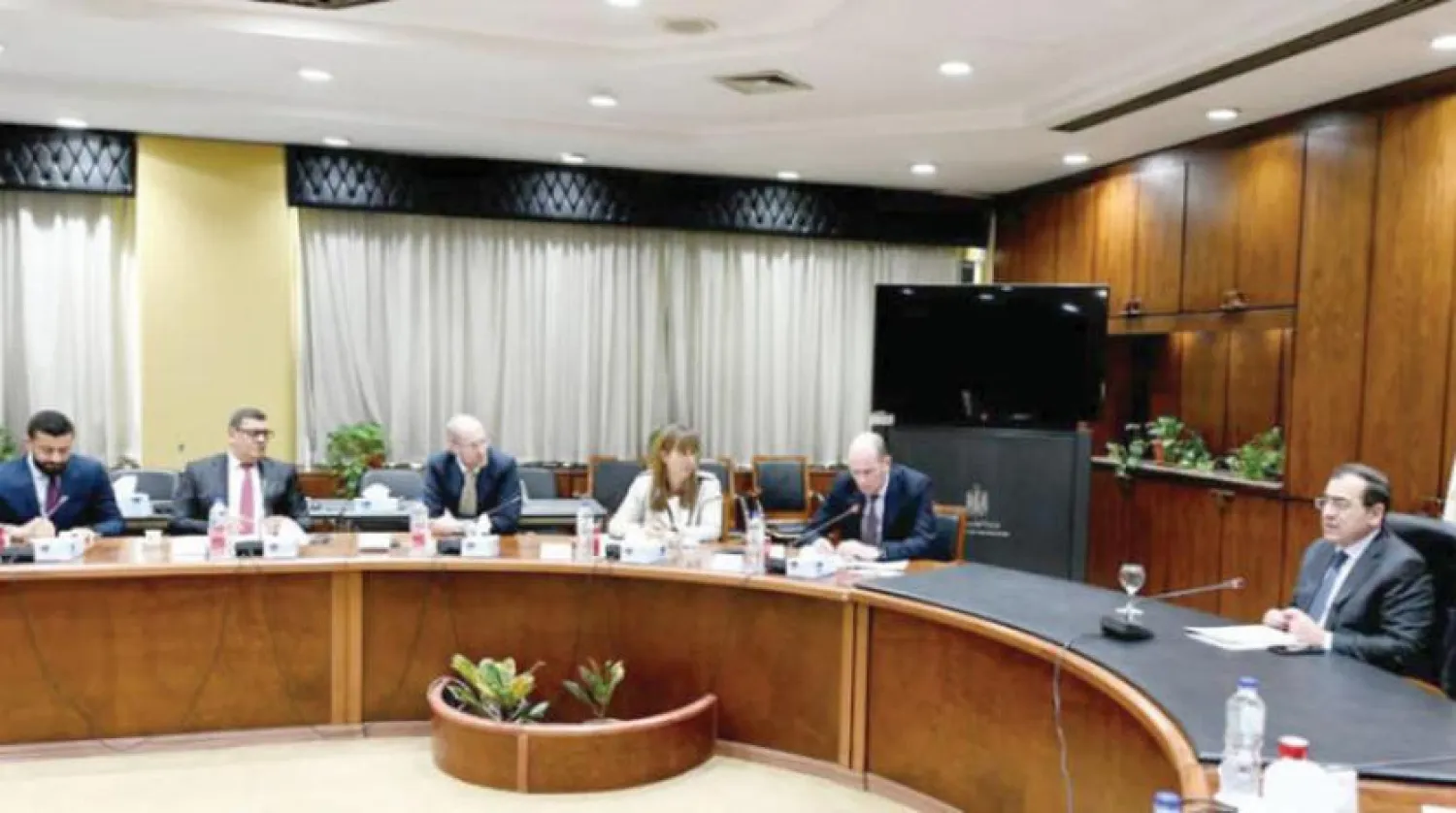Egypt and the European Bank for Reconstruction and Development (EBRD) discussed clean energy transition and Cairo's ongoing preparations for hosting the UN's Conference of Parties on Climate Change (COP 27).
Minister of Petroleum and Mineral Resources Tarek El-Molla met Vice President of Policy and Partnerships at EBRD Mark Bowman and his accompanying delegation.
The two sides discussed reducing emissions, clean energy, global oil, and natural gas prices, which are witnessing a significant increase affected by the current political crises.
During the meeting, Molla asserted Egypt's commitment to international agreements that aim to preserve the environment and reduce emissions, namely the Paris Climate Agreement.
The two sides agreed to form a joint workgroup to identify clean energy projects, reduce emissions, and prepare for an initiative in light of studies on the low-carbon path to be launched in COP 27.
Molla also indicated that Egypt had adopted an ambitious strategy that supports the transition to cleaner energy use and the reduction of carbon emissions as part of its 2030 Vision for Sustainable Development.
Speaking at a press conference afterward, the Minister said Cairo is currently working on an ambitious plan in partnership among all ministries concerned to use hydrogen as a low-hydrocarbon fuel source.
He noted that modern and advanced technologies are an excellent opportunity to reduce, capture, store, and exploit carbon emissions, which was impossible a few years ago.
Molla pointed out that the petroleum sector is currently working on several projects to reduce these emissions.
The sector is developing a project to produce wood panels from rice straw, which is one of the effective solutions applied by the ministry to support the state's efforts to avoid burning rice straw and instead achieve added value by manufacturing it in advanced ways to provide products with a distinct economic return.
Egypt is currently implementing a pilot project in partnership with the Italian company Eni in Maliha, a subsidiary of Agiba Company in the Western Desert, to capture and store carbon with new technologies.
Egypt is also developing several projects to benefit from flare gases instead of burning them in oil fields, contributing to reducing carbon dioxide emissions by more than 800,000 tons.
For his part, Bowman affirmed the European Bank's appreciation of the partnership with Egypt in many fields and its aspiration to expand cooperation with Cairo in general and the petroleum sector in particular.
He also expressed the bank's full readiness to support Egypt's efforts to preserve the environment and to participate in the upcoming COP 27.









